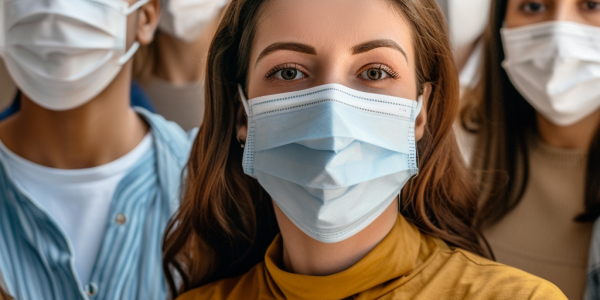Study Reveals Autoantibodies’ Role in Susceptibility to Viral Infections
A groundbreaking study from the University of Zurich reveals that about 2% of the population develops autoantibodies against type 1 interferons, heightening the risk of severe viral infections like COVID-19. These autoantibodies impair the immune response, making individuals more susceptible to viral diseases. The research emphasizes the need for further exploration into immune system complexities and potential therapeutic strategies to enhance defenses against viral infections.
Study Shows N95 Respirators Highly Effective in Preventing Airborne Transmission of SARS-CoV-2
A recent study conducted by researchers at the University of Maryland (UMD) has highlighted the effectiveness of N95 respirators in preventing the leakage of SARS-CoV-2 virus into the air. The study compared various face masks and respirators in impeding the transmission of COVID-19. The ‘duckbill’ N95 respirator was found to be the most effective, stopping 98% of the virus from entering the air. This research emphasizes the importance of using N95 respirators to reduce the airborne transmission of the virus, especially with highly transmissible variants like Omicron.
Outbreak of ‘Slapped Cheek Disease’ Hits New Jersey Schools
Learn about the recent outbreak of ‘Slapped Cheek Disease’ in New Jersey schools, causing concern among parents and educators. Fifth Disease, characterized by a red rash and flu-like symptoms, is highly contagious. Parents are urged to monitor their children’s health and take preventative measures to reduce the risk of illness transmission.



